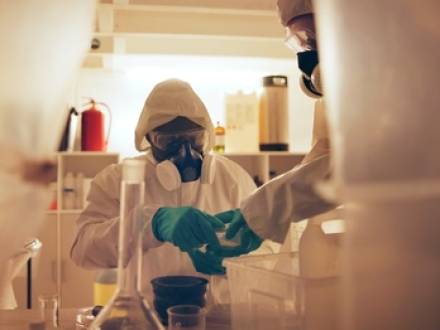What Is Considered Drug Manufacturing Under Illinois Law?
 Illinois prosecutors take drug manufacturing charges very seriously. These cases often involve claims that someone created or helped create illegal drugs for sale or distribution. While many people imagine drug manufacturing as a large meth lab, the law covers much more. Even small-scale involvement in producing or preparing drugs can lead to harsh penalties.
Illinois prosecutors take drug manufacturing charges very seriously. These cases often involve claims that someone created or helped create illegal drugs for sale or distribution. While many people imagine drug manufacturing as a large meth lab, the law covers much more. Even small-scale involvement in producing or preparing drugs can lead to harsh penalties.
If you are accused of manufacturing drugs, an experienced Chicago, IL drug defense attorney can help you understand your options and protect your rights.
Understanding Drug Manufacturing Under Illinois Law
Under the Illinois Controlled Substances Act (720 ILCS 570/102), drug manufacturing includes any activity involved in making or preparing controlled substances. This can mean mixing or producing drugs, processing or packaging them, or labeling them for sale. Even helping someone else with part of the process may count as manufacturing.
You can face charges even if you did not handle the drugs directly. Simply possessing certain equipment or chemicals used to make drugs could be enough for prosecutors to bring manufacturing charges.
Actions That Could Lead to Drug Manufacturing Charges
Many different actions can fall under this category. Common examples include:
-
Running or assisting in a meth lab, including providing materials or space used to make meth
-
Mixing chemicals to produce synthetic drugs like LSD or ecstasy
-
Packaging or labeling drugs to sell them
-
Possessing lab tools or precursor chemicals for manufacturing
-
Changing drugs to prepare them for sale, such as turning cocaine powder into crack cocaine
Even limited involvement in these activities can lead to felony charges.
Penalties for Drug Manufacturing in Illinois
Drug manufacturing is always charged as a felony, and penalties depend on the type and amount of the drug. Illinois divides controlled substances into "schedules," with harsher penalties for more dangerous drugs.
Heroin, Cocaine, or LSD
Manufacturing 15 grams or more can result in a Class X felony, carrying six to 30 years in prison and fines up to $500,000. Larger amounts can lead to up to 60 years in prison.
Methamphetamine
Under the Methamphetamine Control and Community Protection Act (720 ILCS 646/15), manufacturing less than 15 grams is a Class 1 felony, while 15 grams or more is a Class X felony. Sentences can range up to 60 years and fines up to $400,000.
A conviction can also lead to property forfeiture, and probation is rarely available in these cases.
Possible Defenses to Drug Manufacturing Charges
Every drug case is different, and a strong defense depends on the specific facts. A knowledgeable Illinois criminal defense lawyer will start by reviewing how the police handled your arrest and whether they had a valid search warrant or probable cause. If the evidence was collected illegally or your constitutional rights were violated, parts of the case could be thrown out.
Your attorney will also look at how the substance was tested and whether the results were accurate. In some cases, people are accused of drug manufacturing even though they did not actually take part in the activity. You may have been near the scene or unaware of what was happening.
If the evidence is weak or the investigation was mishandled, your lawyer may be able to challenge the prosecution’s case, negotiate reduced charges, or seek a full dismissal.
Contact Our Cook County, IL Drug Manufacturing Defense Attorney
A conviction for drug manufacturing can change your life. At Luisi Legal Group, we know how to challenge these charges and protect your future. Our legal team will fight to uncover the facts, question the prosecution’s evidence, and push for the best outcome possible.
Call 773-276-5541 today to schedule a free and confidential consultation with a Chicago, IL drug manufacturing defense lawyer. We will stand by you every step of the way.







